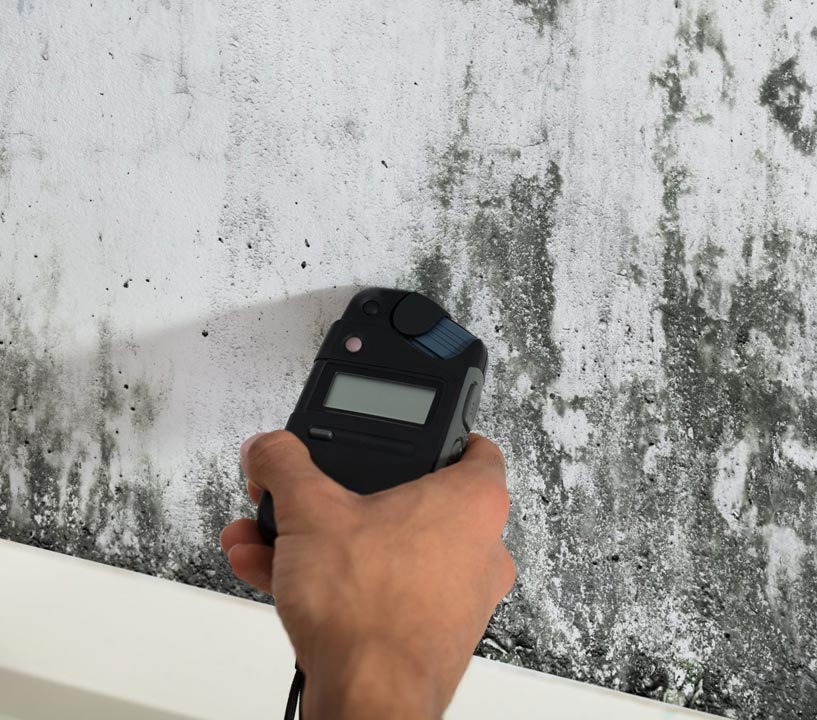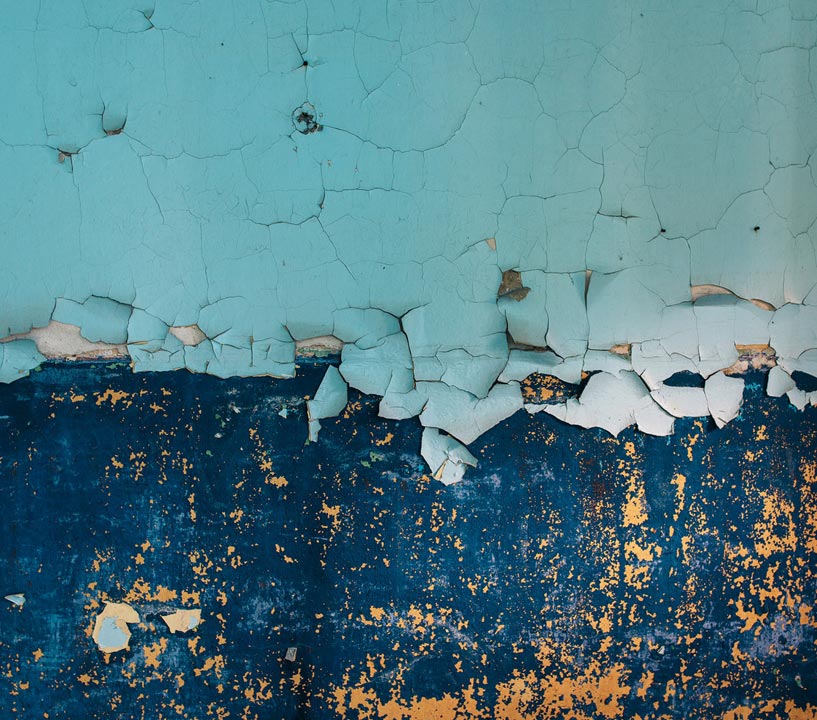Mold Testing
Mold is a type of fungi. Not all molds and fungi are bad; in fact, many are very beneficial. But when they grow inside your home, it creates a problem. ServiceMaster Albino has mold remediation specialists who are ready to help you detect and remove mold from your home so you stay healthy and your building stays strong.

Types of Mold
Just like mold is a subgroup of fungi, species of mold can be divided into different groups, including:
- Allergenic Molds: These molds cause sneezing, coughing, and other cold-like symptoms in some people.
Species: Alternaria, Aspergillus, Cladosporium, Mucor, Ulocladium
- Pathogenic Molds: These molds cause infections if the spores enter into the human body.
Aureobasidium
- Toxic Molds: These molds can cause long-term health problems and potentially death.
Species: Stachybotrys (black mold), Acremonium, Chaetomium
While many allergenic molds can be removed with vinegar, bleach, hydrogen peroxide, or other household cleaners, most pathogenic and toxic molds will need to be removed professionally.
Since they are hazardous to humans, special precautions need to be taken when working around these kinds of mold.
As a general rule of thumb, if a mold infestation covers 10+ ft2 of space, a professional should be consulted.
Growing Conditions for Mold
While each species of mold may have a preference when it comes to where they grow – drywall, under carpets, in air ducts, etc. – there are a few conditions all molds need to grow. These conditions include:
- Moisture: Any source of moisture can result in mold. Leaks from a roof, window, or pipe provide the mold with a constant source of water. Floods also create prime conditions for mold.
- Food Source: Mold is neither plant nor animal, but it is alive and needs a source of energy. The mold produces chemicals that break down the substance it is on so it can absorb it and use it for energy. This process is what we call “rot.” As something rots, the mold is simply eating it.
Common things for mold to grow on and consume include cardboard, carpet, drywall,
dust, fabric, insulation, paint, paper, wallpaper, and wood.
- Right Temperature: Molds have optimal temperature ranges in which they grow. If it is too hot or too cold, it cannot survive. Unfortunately, mold tends to enjoy the same temperature at which most houses and businesses are kept, making these buildings ideal spots for mold.
Mold will continue to grow and spread until the conditions change. If the moisture or food source is removed or the temperature changes, the mold will not be able to survive.
How Mold Gets Inside
Mold generates spores that are released into the air. When a mold spore lands in a spot with the right conditions, it will start growing and spreading. These spores are all around us and can enter your home through:
- Open Doors and Windows
- Vents
- Heating and Air-Conditioning Systems
- On Clothes, Shoes, or Pets
Most of the time, these spores are not harmful and will not cause an infestation. Occasionally, if a spore lands in just the right spot and is left to grow, it can become a problem.
When you first notice mold on your food or on a surface, it is removed right away, which prevents it from spreading. Infestations typically occur in hard-to-see spaces, which allows them the time to grow larger.
Mold Testing
Even if you have not seen the mold, you can smell it. When you walk into a room and it smells musty, that is usually mold. Another indicator of mold’s presence is if people have allergy or asthma symptoms when in the space. If you suspect your home or office has a mold problem, it needs to be handled right away.
ServiceMaster Albino’s highly trained specialists will come out and do mold testing. Mold testing can be done in several ways, including:
- Air Samples
- Surface Samples
- Visual Inspection
Since mold can grow in tricky places, we will test for it inside wall cavities and in confined spaces.

Mold-Free with ServiceMaster Albino
After the mold testing is complete, if spores are found, we will determine what type of mold it is and formulate a plan to remove it from your home and repair any damage it caused. Since the medium on which the mold is growing is rotten, it must be removed and replaced.
Just removing the mold is not enough, though; if the conditions remain, other spores can grow there. However, we will help you determine what the source of moisture is and provide you with a plan of action to make sure the conditions are no longer hospitable to mold.
If you are concerned about mold in your home, whether you have seen it or not, ServiceMaster Albino is here for you. We service the greater Waterbury area, including Hartford and New Haven. You can give us a call at (203) 753-0666 or contact us online.
